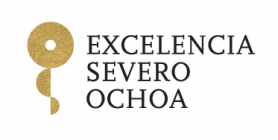"Salón de actos" del Museo de la Ciencia y el Cosmos (MCC)
Avda. Los Menceyes 70
38205 San Cristóbal de La Laguna
The XXXIII Canary Islands Winter School of Astrophysics, organized by the Instituto de Astrofísica de Canarias (IAC), focuses onAstroparticle Physics and Cosmology. The school, to be held in San Cristóbal de La Laguna (Tenerife, Spain) from 21 November to 2 December 2022, will admit about 60 advanced MSc students, PhD students and young Post-Docs. In a relaxed environment, the school will give participants the opportunity to learn from world-renowned specialists.
Astrophysical and cosmological observations imply that only 5% of the energy of the universe is made of conventional matter. The remaining 95% is the dark universe, composed by some unknown type of matter which has no (or extremely weak) direct interactions with light and the rest of the particles of the standard model (dark matter), and by a puzzling form of energy that exhibits negative pressure, accelerating the universe's expansion (dark energy). This fundamental conundrum of the current cosmological paradigm is exacerbated by other mysteries regarding the mechanism and energy scale of cosmic inflation and the origin of the matter-antimatter asymmetry in the universe.
In the next decades, new cosmological surveys will map with unprecedented sensitivity the optical and infra-red large scale structure in the evolved universe, while others will use radio waves to access unexplored cosmological epochs. At the same time, upcoming gravitational wave observatories will open a brand new, independent observational window to the physics of the universe, which will be complemented by the unprecedented input from cosmic, neutrino-, and gamma-ray observatories. Finally, a huge effort is also being made in searching for new physics in ground laboratories, with a myriad of ongoing and planned experiments breaking new ground in the high-precision and energy frontiers.
Advancing these questions is the focus of a multidisciplinary effort at the frontiers of astrophysics, cosmology and particle physics that is setting the scene for future scientific breakthroughs.
The aim of the Winter School is, therefore, to provide an up-to-date portrait of this this golden era of Astroparticle Physics and Cosmology, given by world-renowned researchers and covering the most promising areas of activity.
Participants of the Winter School will have the opportunity to display their current work by presenting a talk or a poster.
Renowned specialists in the field will lecture on a selection of topics
First Week:
-
Diego Blas (IFAE): Overview on connections between Astrophysics, Cosmology and Particle Physics.
-
Fabio Finelli (INAF OAS Bologna): Fundamental Physics with CMB.
-
Matteo Viel (SISSA): Fundamental Physics with LSS.
-
Luca Amendola (Univ. Heidelberg): Dark Energy - theoretical and observational status.
-
Kfir Blum (WIS): Fundamental Physics with Galaxies.
Second Week:
-
Valerie Domcke (CERN): Early Universe and Inflation.
-
Tracy Slatyer (MIT): Dark Matter - theoretical and observational status.
-
Olga Mena (IFIC): Neutrinos in Cosmology and astrophysics.
-
Vitor Cardoso (Lisbon and Niels Bohr): Gravitational waves.
-
Francesca Calore (LAPTH): Fundamental Physics with cosmic rays and gamma rays.
In addition, we plan a session and public talk by our distiguished guest Prof. Dr. Malcolm Longair.

